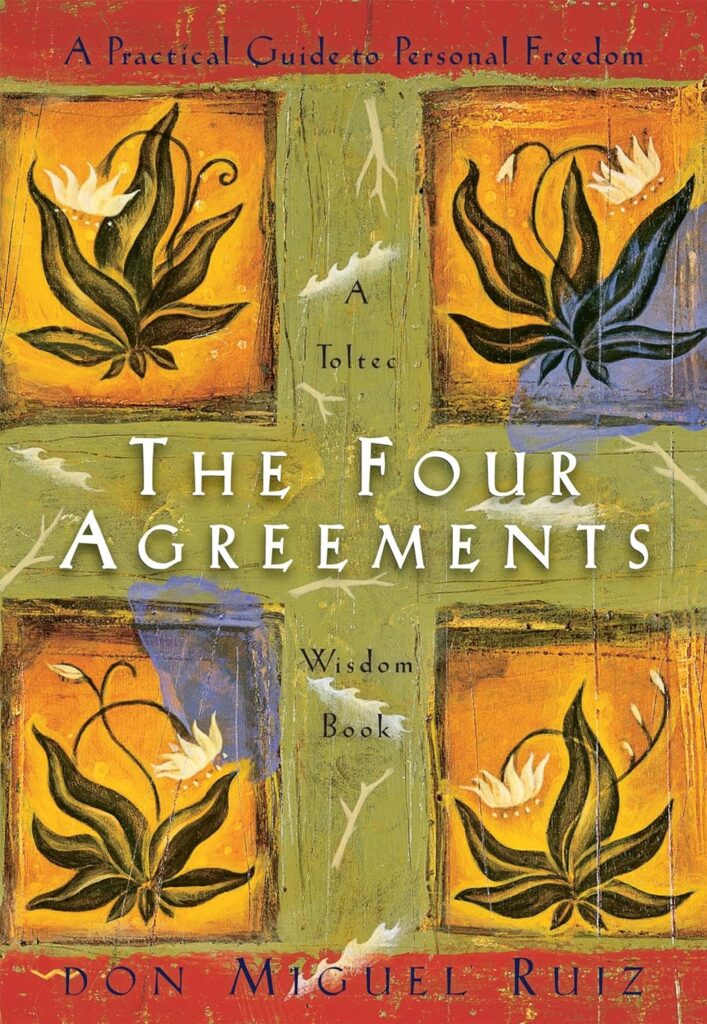When I first read The Four Agreements by Don Miguel Ruiz, I was struck by its simplicity and profound insights. The four agreements—be impeccable with your word, don’t take anything personally, don’t make assumptions, and always do your best—seemed like a roadmap to a more harmonious life. But as I continued to explore and discuss the book, I began to encounter various criticisms. Curious, I decided to delve into these critiques to see if they held any weight and how they might influence my own understanding of the book’s teachings.
1. Idealism vs. Realism
One criticism I often come across is that The Four Agreements can be overly idealistic. The agreements are presented as universal truths that should be applied in all situations, but some critics argue that this one-size-fits-all approach might not be practical in real life.
I remember grappling with this notion myself. For instance, the idea of being impeccable with your word sounds great in theory. However, in real-world scenarios where emotions run high and misunderstandings are common, maintaining such impeccable integrity can be incredibly challenging. There are times when the pressure to act quickly or to express oneself candidly can override the ideal of always being impeccable. Does this mean the agreement is flawed, or is it simply an aspirational goal that helps guide us rather than serve as a rigid rule?

2. Cultural and Contextual Relevance
Another point of criticism I encountered is related to the cultural and contextual relevance of the agreements. Don Miguel Ruiz draws on ancient Toltec wisdom, which may not resonate with everyone, especially those from different cultural backgrounds. Critics argue that the principles, while valuable, might not always be applicable in every cultural or personal context.
Reflecting on this, I wondered about my own experiences. I’ve found that the principles often need adaptation to fit different social and cultural contexts. For example, not taking things personally can be challenging in cultures where personal relationships and emotional expressions are deeply intertwined. Is it possible that Ruiz’s teachings need a more flexible interpretation to align with varying cultural norms and individual experiences?
3. Practical Implementation
A common critique is that while the agreements are inspiring, they can be difficult to implement in daily life. The Four Agreements suggest a high standard of behavior and mindset, but critics argue that achieving this standard can be unrealistic, especially in complex, fast-paced environments.
I’ve felt this frustration myself. There are days when sticking to these agreements feels like an uphill battle. For instance, always doing my best sounds straightforward, but in the face of exhaustion or stress, what constitutes my “best” might fall short. Does this mean the agreements are flawed, or do they simply serve as an ideal to strive towards, knowing that perfect adherence is not always feasible?
4. Oversimplification of Complex Issues
Some critics argue that the agreements oversimplify complex psychological and emotional issues. For example, not taking things personally sounds like a powerful tool, but it may not address underlying issues such as deep-seated insecurities or trauma that influence how we perceive and react to others.
I’ve noticed this in my own life. While the agreements offer a helpful framework, they don’t necessarily provide the depth required to tackle more profound emotional struggles. They can sometimes feel like a band-aid solution rather than a comprehensive approach to mental and emotional health. Is it fair to view the agreements as simplistic, or do they offer a starting point for deeper personal exploration?
Finding Balance
As I pondered these criticisms, I came to appreciate that while The Four Agreements might not offer perfect solutions to every problem, they provide valuable insights and a framework for personal growth. The criticisms highlight the need for balance and adaptation in applying these principles to our lives.
What do you think? Have you found The Four Agreements to be a useful guide, or do you struggle with its idealism and applicability? I’d love to hear your thoughts and experiences. How have you navigated the challenges of implementing these agreements in your own life? Let’s continue the conversation and explore how we can all find our way through the wisdom of Don Miguel Ruiz.




